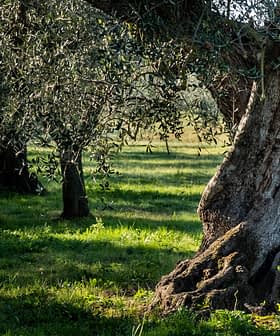Burning Wood for Energy Threatens European Forests
Wood is considered both a renewable and carbon-neutral energy source in Europe. However, large swaths of forests are being clear-cut to cover the demand for wood.
In an effort to move away from fossil fuels, the European Union has been subsidizing the burning of wood for energy production for more than a decade.
As a result, wood in all its forms, such as tree logs, forest residues, crop waste and wood pellets, has become the most common source of energy in Europe.
For the first time, an E.U. institution has recognized that burning trees might not be the best way of getting off fossil fuels and stopping runaway climate change.
However, large swathes of European forests are starting to disappear to satisfy the growing demand for wood across the continent. The energy crisis spurred by the war in Ukraine has further exacerbated the problem of clear-cutting European woodlands.
In Finland and Estonia, forests, once considered critical points in the battle to reduce carbon dioxide levels in the atmosphere, are now regarded as carbon emitters due to extensive logging.
See Also:Europe Endures Hottest Summer on Record“People buy wood pellets thinking they’re the sustainable choice, but in reality, they’re driving the destruction of Europe’s last wild forests,” said David Gehl of the Environmental Investigation Agency, a Washington-based advocacy group.
In Romania, the New York Times tracked a load of trees harvested from an ecologically significant woodland to a wood-processing plant that grinds the trees into sawdust to form pellets. According to the American newspaper, the plant received hundreds of shipments of trees from protected forests in the past year alone.
The hunger for wood in Europe has also crossed the Atlantic Ocean, fueling a booming industry with devastating effects on the woodlands of the rural southeastern United States.
Additionally, a study conducted by the E.U. last year found that burning wood for energy causes more pollution than receiving the same amount of energy from fossil fuels.
Nevertheless, the energy produced from wood is dubbed carbon-neutral in Europe, and the Member States can freely use it to achieve their clean-energy targets in the context of the Paris Climate Agreement.
The European Parliament voted to end public subsidies for ‘primary woody biomass,’ aiming to taper off cutting down trees for energy production. Using forest residues and wood waste as an energy source, on the other hand, will remain eligible for subsidies.
“For the first time, an E.U. institution has recognized that burning trees might not be the best way of getting off fossil fuels and stopping runaway climate change,” said Alex Mason, head of E.U. climate and energy policy at the World Wildlife Fund (WWF).
The parliamentary bill has to be negotiated with the Council of the European Union and the European Commission before becoming law.
However, several European countries, especially in central and northern Europe, oppose the initiative to phase down wood-burning as an energy source, particularly while uncertainty exists over the delivery of oil and gas shipments from Russia to Europe.
“We need more domestic renewable energy and self-sufficiency, not less,” Antti Kurvinen, the Finnish minister for agriculture and forestry, said. “I will fully promote forest energy.”








